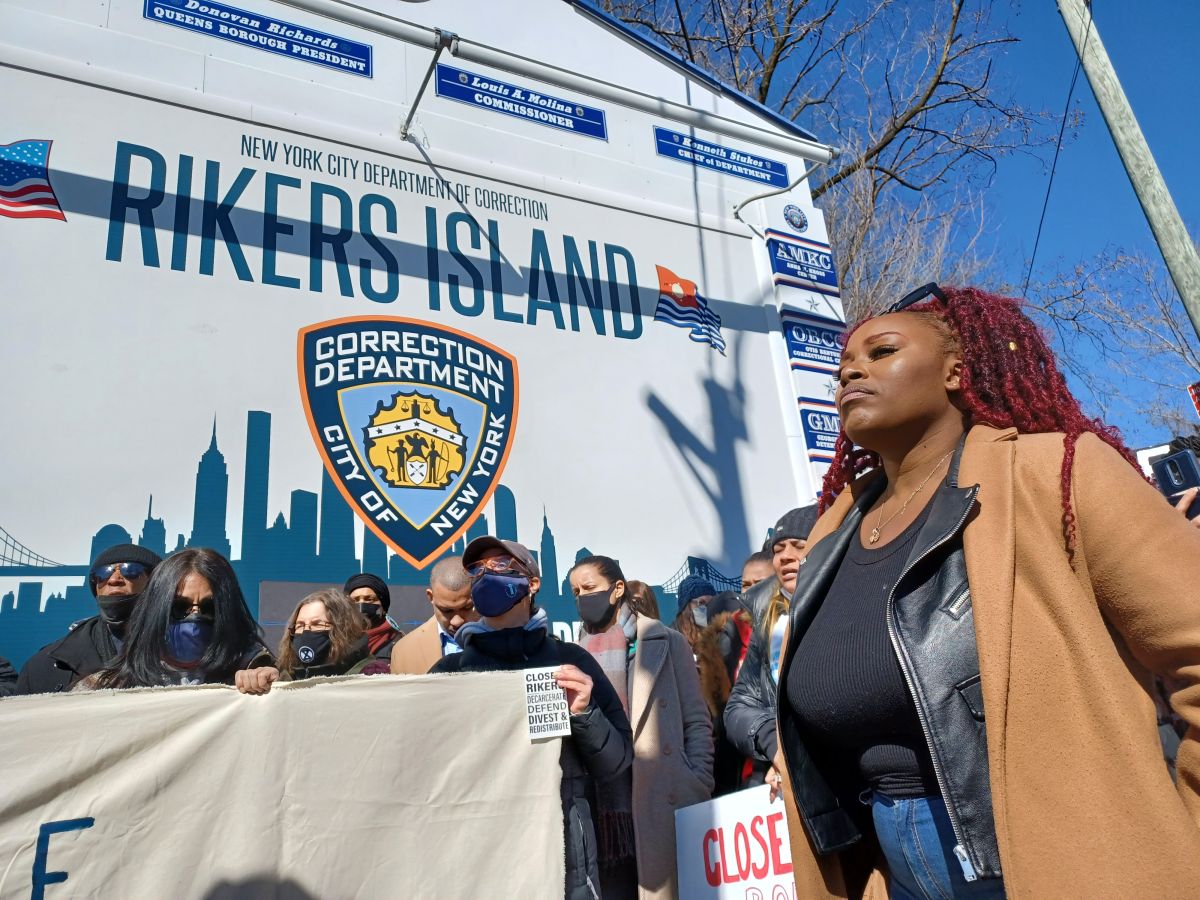After just a few hours, the first death of an inmate was confirmed in this 2013, in the Rikers Island prison, already at the gates of the largest prison in New York, in Queens, hundreds of activists and relatives of inmates were pressing for “urgent” changes in the prison system.
This Monday, spokespersons for the Black Lawyers for Legal Assistance (BALA) caucus and a dozen organizations that defend the rights of the incarcerated population, once again called for “structural changes” to stop what they define as as a “humanitarian and racist crisis” in the New York penal system.
The protest coincided with the last day of black history month. And precisely for this reason, they ratified a sequence of demands that has been in the voices of activists for decades: mass release to reduce prison overcrowding, immediate closure of Rikers Island, an end to solitary confinement, and educational and health programs.
“90% of those incarcerated at Rikers, living in the worst conditions of insecurity are people of color. And that is no accident. How many more lives do we have to lose for there to be a turn in this story of injustice and discrimination?”, reacted Olayemi Tolulope, organizer of the Legal Aid Society of NY (Legal Aid).
DOC investigates
Last Sunday, the first death this year of an inmate in the custody of the New York City Department of Corrections (DOC) was officially ratified, a fact that joins the list of inmates who died in different circumstances last year, which means the highest number since 2013.
I know tried Tarz Youngblood, from years old, who was found unconscious in his cell at the George R. Vierno Center on Rikers Island.
The cause of death is still under investigation.
Youngblood was arrested for the alleged crime of harassment last May and had been incarcerated on Rikers Island since September 5, DOC records show.
“We will work aggressively to determine the circumstances surrounding this inmate’s death. My deepest condolences to their loved ones,” DOC Commissioner Louis Molina said in a statement.



The protests will be reactivated
The protests around the prison center flared up once again, after the last quarter of 2020 was marked by various mobilizations, given the growing complaints about the lack of medical and social services, overcrowding in some detention units and a wave of violence. All triggered by the coronavirus pandemic.
“One more death as a result of the inhumane conditions there, but added to this is the physical, mental and emotional trauma suffered by the detainees who were lucky enough to survive their stay. Pretrial detention should not be a death sentence. They must release the detainees and close Rikers now. We are not going to rest on this request”, said Julia Jenkins, a representative of BALA.
The action at the gates of this New York prison was also produced in reaction to the concern it produces in the organizations that push for criminal justice reform, when Mayor Eric Adams has asked the State Assembly to enact a “dangerousness” provision in the controversial Bail Reform Act that went into effect in 2020.
“Simply put, it is a request to further empower the judges to continue with their unfair and biased practices, which further condemn communities of color in the penal system”, criticized Jenkins.
For her part, Tina Luongo, lawyer from the Legal Aid Criminal Defense practice , confirmed that this organization witnesses the “severe abuse” faced by people behind bars every day.
“It is known been that the overwhelming majority of inmates are Black and Hispanic. We stand in solidarity today with thousands of families and advocates on this final day of black history commemoration. We echo this demand: Immediate incarceration!” Luongo cried out.


“My nephew also died in Rikers”
Last September, the nephew of Puerto Rican Sonia Khadu, a resident of Brooklyn, also expired in a cell on Rikers Island.
“He was a young man barely 24 years, who waited two years for a sentence that never came. I am here today because I join the pain of those families, who have to go through the inhumane fact that a relative falls into a prison, where there are not even medical services. They treat them like garbage”, she said.
Sonia refers to another case that mobilized activists last year: Stephan Khadu’s young man died last 22 of September after being held at the Vernon C. Bain Center in Rikers, following a medical issue. The reasons for this death are still being investigated.
